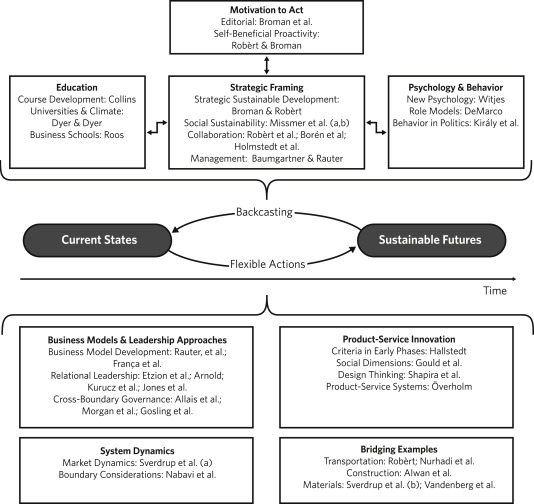
Special Issue: Science in support of systematic leadership towards sustainability
- Post by: Tobias Larsson
- 8th November 2016
- No Comment
BTH Professors Göran Broman, Karl-Henrik Robèrt and Tobias Larsson, has together with Terrence J. Collins (Carnegie Mellon University), George Basile (Arizona State University), Rupert J. Baumgartner (University of Graz), Tobias Larsson, Donald Huisingh (University of Tennessee) been editors for a Special Issue of Journal of Cleaner Production.
Now the issue is out.

Find the Special Issue here:
- http://www.sciencedirect.com/science/article/pii/S0959652616314263
- http://dx.doi.org/10.1016/j.jclepro.2016.09.085
Highlights
- A foundation for science-based leadership towards sustainability is provided.
- Sustainability is defined and sustainable development is operationalized
- Sustainability leadership concepts, methods, tools and other support are given.
- Examples bridging theory and practice in various application areas are given.
- Sustainable innovation in business and policy is explored and illuminated.
Abstract
The un-sustainable course of our societies is the greatest threat humanity has ever confronted. The biophysical systems upon which we are totally dependent have not been challenged by human activities at the global scale before and our impacts upon those planetary systems, as well as upon our social systems, cannot be adequately addressed by ad hoc solutions. Science and leadership will be required to address this threat and transform our current societies into sustainable societies. This Special Volume presents an evolving, yet increasingly cohesive, science-based perspective on leadership towards sustainability. Examples of crucial, overall questions addressed by authors of articles in this Special Volume are: How can science help to clarify sustainability as a foundational platform for success for society’s core institutions (e.g. business, governance and education), and how can this platform inform envisioning, planning, monitoring, communication and decision making to accelerate the needed transitions? The conceptual framing of sustainable development in this Special Volume is based upon the logic that it is only if we can define sustainability in a scientifically solid way, as a frame for any vision, that we can analyze current situations in relation to such sustainable visions, and design strategies to close the gap to such visions. In moving from current situations towards possible sustainable futures, specific support in the form of leadership concepts, methods, tools, and requirements are also essential, i.e. given clarity around what needs to be achieved, effective leadership then requires knowing how to achieve it. Both the what and the how questions are addressed in this Special Volume. The research described provides a foundation for moving from ad hoc activities to systemic, systematic and strategic transitions towards sustainability.
